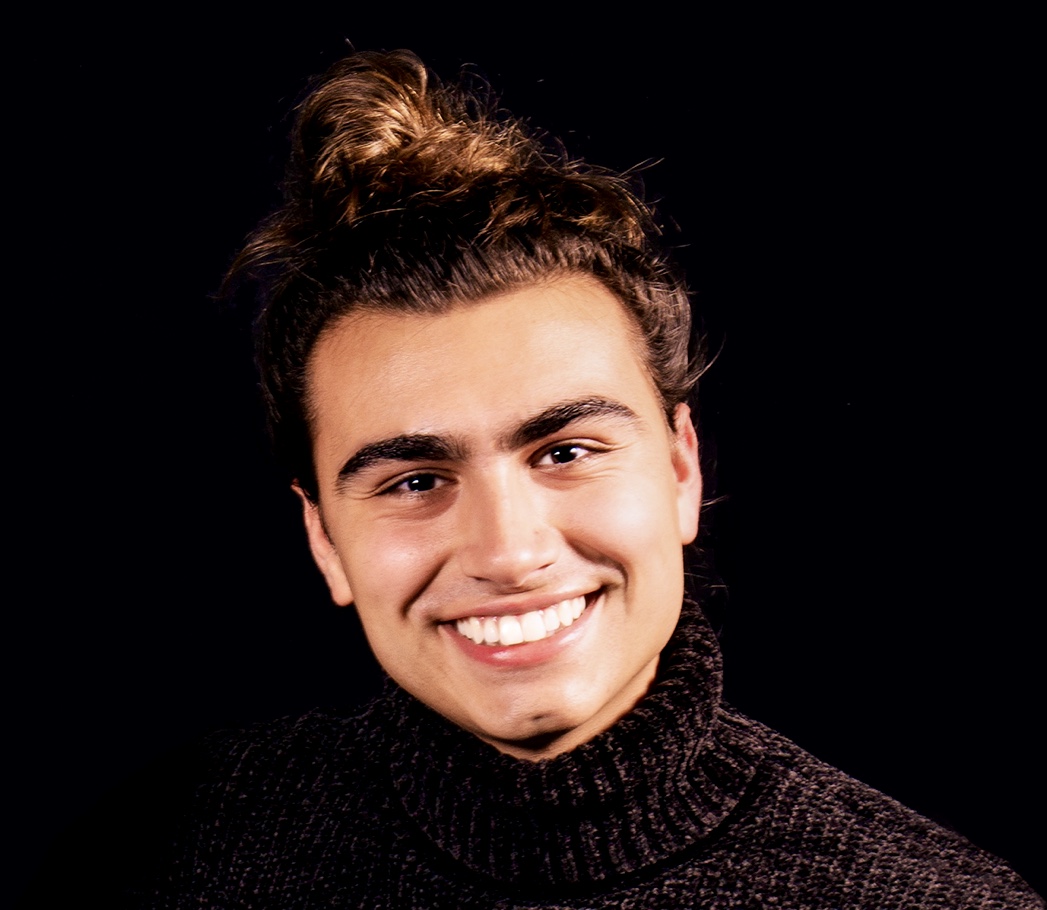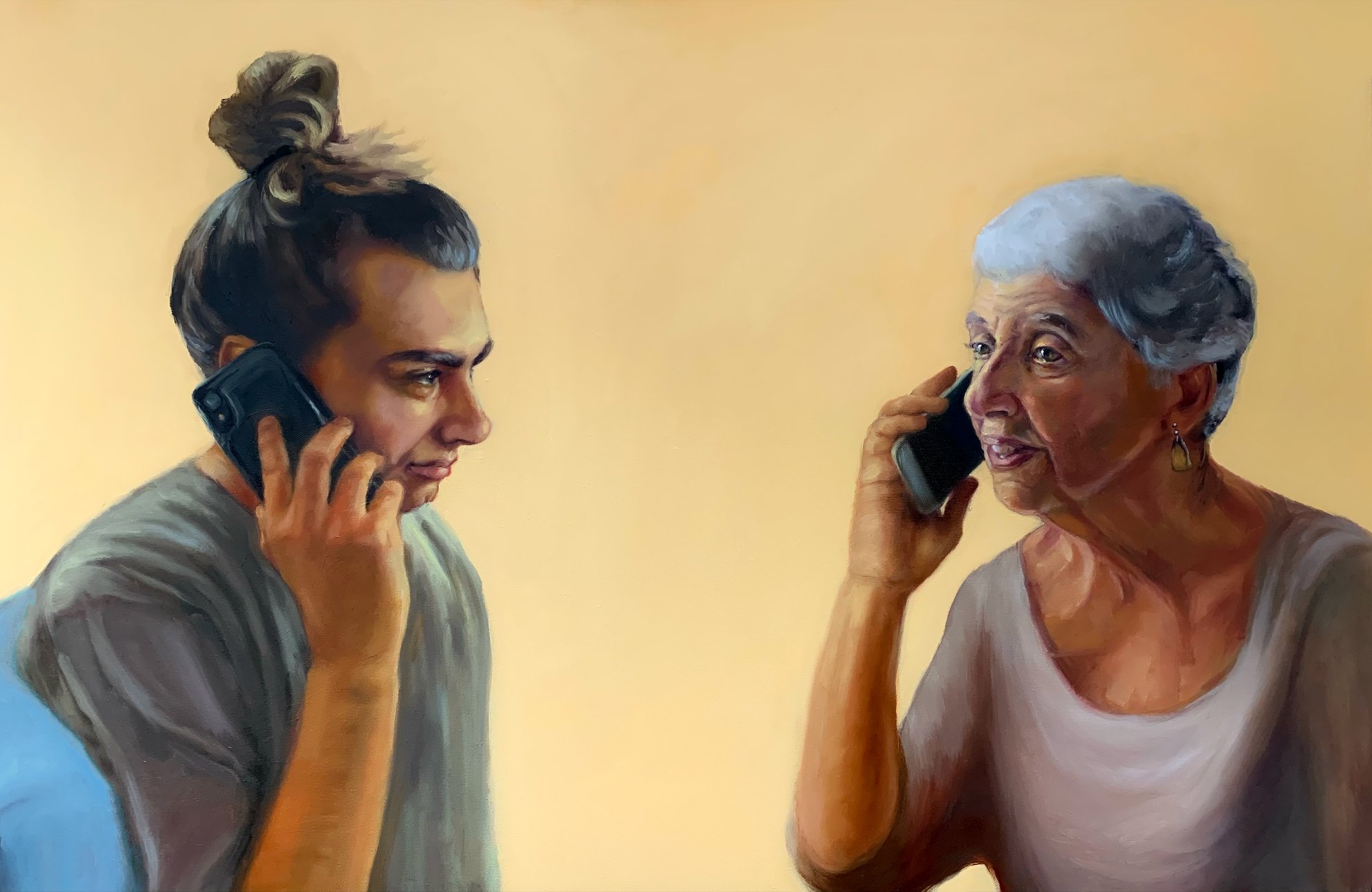In this Featured Member series, AATA celebrates the work of our members.
July 15, 2020
 Tell us about yourself
Tell us about yourself
My name is Zachary D. Van Den Berg (He/Him/His; They/Them), I am pursuing my Master of Arts in Counseling: Art Therapy from Adler University in Chicago, IL and received my BFA at the School of the Art Institute (SAIC), where I was first introduced to art therapy. Currently, I am President of the Adler Art Therapy Student Association, administrator of the online international forums, Art Therapy Students Associated and Queer Creative Arts Therapies, and volunteer coordinator for Expressive Media’s Film Library. Starting in early August, I will be interning at the Center on Halsted, an LGBTQ+ community center in Chicago. I am interested in arts-based research, queer theory, and working with the LGBTQ+ community. Visit my website for more of my current work.
For the last several months, I have been a member of AATA’s Multicultural Committee. It has been an incredible honor and privilege to collaborate with such remarkable art therapists. Parenthetically, I have been working closely alongside Membership Services in creating resources and opportunities for student engagement within the Association, as well as drafting proposals to address financial inequities that bar marginalized communities from entering the field. These two initiatives have enabled me to address comorbid issues within the areas of diversity, equity, and inclusion.
Since the killing of George Floyd, the topic of race has once again been brought to the forefront of national dialogue. How have race related issues, social justice, and racism informed or impacted your studies as an art therapy student?
The concurring pandemics of COVID-19 and the violence against BIPOC communities have shed new light on the covert and overt systemic inequities that have plagued the nation for generations. Consequently, racism has informed and impacted my personal and professional identities as Western ways of knowing have oriented my conceptions of normalcy. Art therapy is unfortunately not immune to these forces, and institutional racism within the field has been documented from the Westernized epistemology of treatment to myopic pathology and beyond.
As someone possessing racial privilege, I strive to decolonize the systems I inhabit and promote anti-racist discourse within myself, my studies, and, eventually, my practice. There is an inherent lack of competency in our nation in cultural humility, providing us an inadequate view of humanity’s breadth. Unfortunately, it took countless innocent lives to bring this awareness to the broader population. I hold myself accountable to be a part of addressing this discrepancy in the hope that the lineage of brave architects of color, such as Cliff Joseph, Georgette Seabrooke Powell, and Lucille Venture will be more widely recognized, and that as an Association we can empower and support the next great generation of BIPOC pioneers in the field.
How do you view your role as an art therapy student during COVID-19?
Because of my position as a student, I recognize that I lack the experience and power to address and act for equitable access to care and professional solidarity with BIPOC art therapists. The discrepancy between my desire to take action and my ability to actualize that desire has opened my eyes to the value of an intersectional approach to examining the power and privilege I hold in other areas. I’ve made the most of this quarantine as a time to wield whatever power I do possess: researching, reading, and promoting BIPOC resources to my cohort, my university, my online groups and hopefully, the Association at large.
Is there anything else you would like to share?
I would like to end this interview by thanking my loving partner, Rocco Thompson, whose tireless support enables me to pursue my dreams with such tenacity, focus and drive.

“Bubbe-Meises” by Zachary Van Den Berg. Oil on Canvas, 24’x36.’ March 2020.
Artist Statement: “This painting, Bubbe-Meises (Yiddish for grandmother’s tales), is a selected piece from my current series, Becoming. These works are responses to the journey of cultivating my professional identity as an art therapist. For the last seven months, I have been working closely with Judith A. Rubin, and the Expressive Media team, to launch her comprehensive Film Library, consisting of archival footage, interviews, documentaries, clinical sessions, and conference presentations. Through this initiative, we have formed a meaningful collaborative partnership. Bubbe-Meises is an homage to her wisdom and an expression of gratitude for her presence in my life.”
